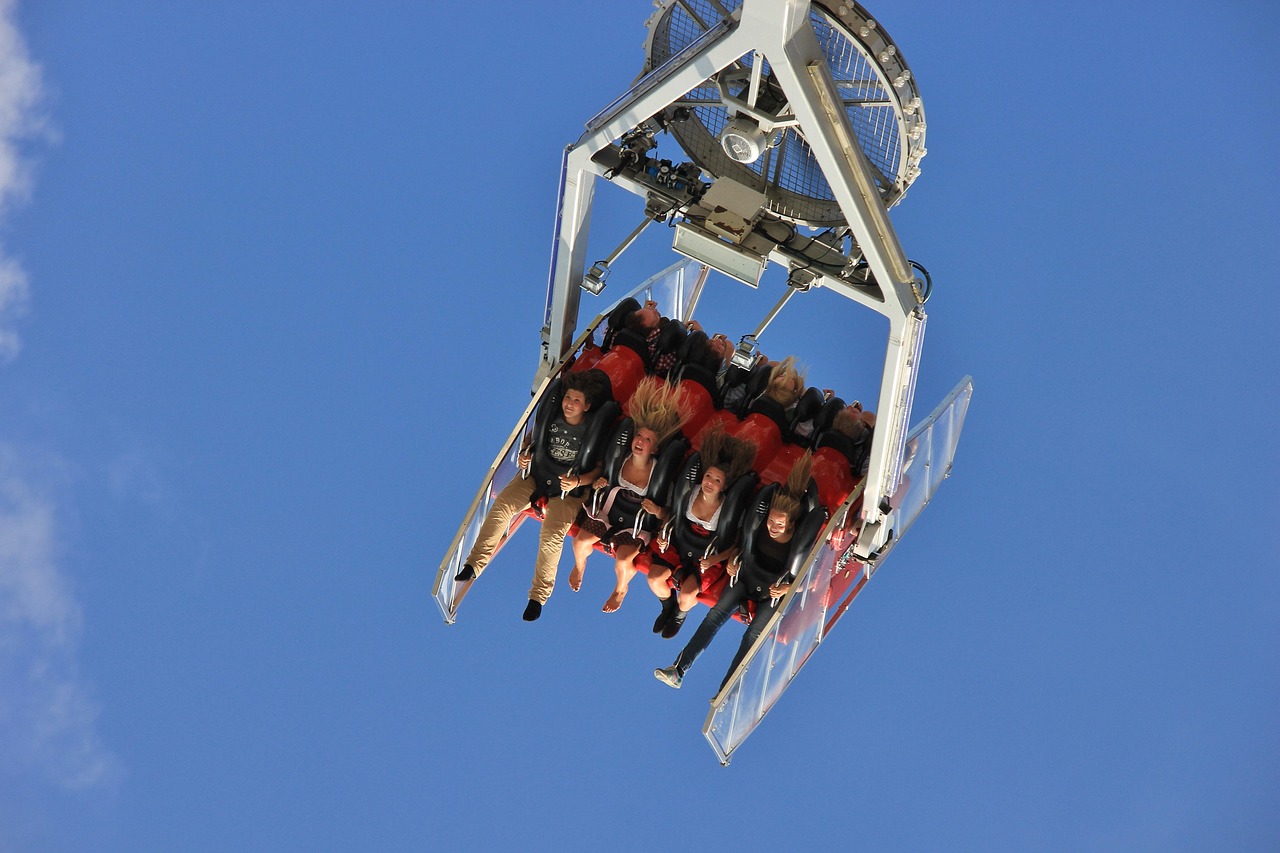Embracing the Rush of High-Stakes Decision Making
The world of high-stakes decision making is a realm where individuals either thrive under pressure or succumb to the weight of uncertainty. For those who inhabit this sphere, the thrill of the unknown is not just exhilarating but also a catalyst for growth and learning. This article delves into the intricate dynamics of high-stakes decisions, exploring realms beyond the confines of trading to unearth the underlying principles that guide risk-based ventures.
The Psychology of Risk Takers
At the heart of every high-stakes decision is a risk taker, an individual with a unique psychological profile. Research has shown that such individuals are not merely gamblers but calculated decision makers who weigh risks and rewards with precision. The psychology of risk takers is intricate, influenced by a mix of cognitive biases, emotional intelligence, and past experiences. Understanding this psychology is crucial for both investors and entrepreneurs, as it forms the bedrock of decision-making processes in high-pressure environments.
Navigating the Landscape of Trading
Trading, in its various forms, represents a quintessential high-stakes environment. The rapid pace of market fluctuations, coupled with the potential for both substantial gains and losses, makes trading a fertile ground for studying decision-making under uncertainty. Experienced traders understand the importance of strategy, risk management, and emotional control. They approach each trade with a clear mind, leveraging data and analysis to make informed decisions. This calculated approach, while not guaranteeing success, significantly enhances the trader’s edge in the market.
Expanding Horizons: Beyond Trading
The principles learned from trading and other high-stakes financial decisions can be applied to a wide range of risk-based ventures. Entrepreneurship, for instance, is a realm where decision making under uncertainty is not just a necessity but a cornerstone of innovation and growth. Entrepreneurs must navigate complex landscapes of market trends, consumer behavior, and competitive dynamics to make decisions that can either propel their ventures forward or lead to their demise. The parallels between trading and entrepreneurship are striking, as both involve wagering on the future with the information available in the present.
Strategies for Success
Success in high-stakes decision making, regardless of the context, hinges on a set of core strategies. These include:
- Risk Assessment: The ability to accurately assess risk is fundamental. It involves understanding the potential downsides of a decision and devising strategies to mitigate them.
- Information Gathering: High-quality decisions are based on high-quality information. This means staying informed about market trends, consumer behavior, and other relevant factors.
- Emotional Intelligence: Emotional control is crucial in high-pressure situations. The ability to manage fear, greed, and other emotions can significantly influence the quality of decision making.
- Adaptability: The willingness and ability to adjust strategies based on new information or changing circumstances are vital for long-term success.
Lessons from Respected Publications
Renowned publications have consistently highlighted the importance of a disciplined approach to high-stakes decision making. Articles from these sources often profile individuals who have navigated such environments successfully, providing insights into their strategies and mental frameworks. A common thread among these stories is the emphasis on preparation, resilience, and a keen understanding of the underlying dynamics of the venture. Such publications serve as valuable resources for anyone looking to hone their decision-making skills in risk-based contexts.
Case Studies: Real-World Applications
To illustrate the principles of high-stakes decision making, consider the following table that outlines a hypothetical investment scenario:
| Investment | Risk Level | Potential Return |
| Stock A | High | 15% |
| Stock B | Medium | 8% |
| Stock C | Low | 4% |
This scenario presents a classic dilemma: balancing the desire for high returns with the need to manage risk. The decision-making process involves weighing the potential outcomes, considering market conditions, and making an informed choice based on available data.
Frequently Asked Questions
For those venturing into the realm of high-stakes decision making, several questions commonly arise:
– How do I manage risk effectively? Effective risk management involves understanding the potential downsides, diversifying investments, and setting clear stop-loss points.
– What role does intuition play in decision making? While data and analysis are critical, intuition can serve as a guiding light, especially in situations where information is incomplete.
– How can I improve my emotional intelligence for better decision making? Practices such as mindfulness, self-reflection, and seeking feedback from others can enhance emotional intelligence.
Conclusion: Navigating the High-Stakes Landscape
The world of high-stakes decisions is complex and challenging, yet it offers unparalleled opportunities for growth and reward. By embracing the principles of risk assessment, information gathering, emotional intelligence, and adaptability, individuals can navigate this landscape with greater confidence and success. Whether in trading, entrepreneurship, or other risk-based ventures, the thrill of high-stakes decision making is undeniable. It is a realm where strategy meets instinct, and where the right mindset can turn risk into opportunity. As one reflects on the insights from respected publications and the experiences of seasoned risk takers, it becomes clear that mastering the art of high-stakes decision making is a journey worth undertaking.

